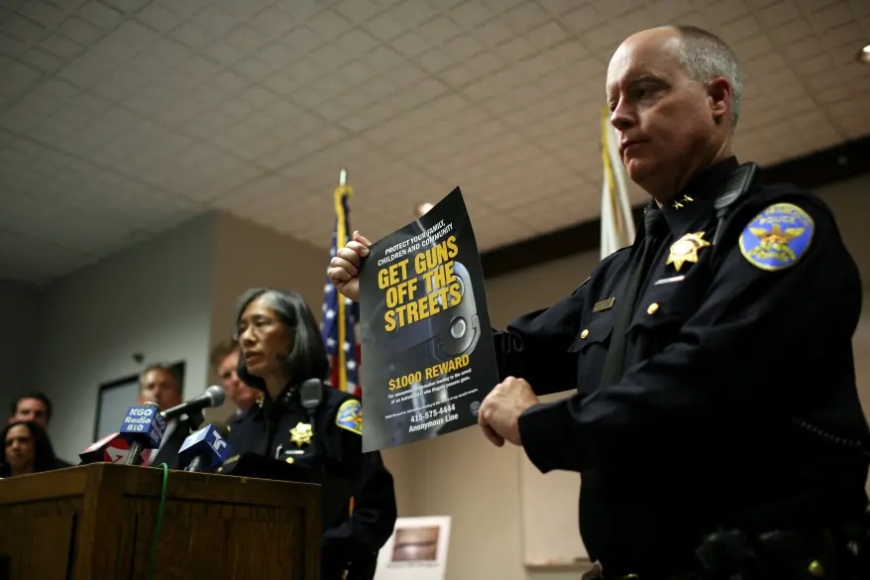Kamala Harris' Record as San Francisco DA Under Scrutiny for Supporting Pre-Trial Diversion for Assaults on Police Officers

Vice President Kamala Harris is facing renewed criticism for her past record as District Attorney of San Francisco, where she supported pre-trial diversion programs for individuals accused of assaulting police officers. This revelation, drawn from public records, raises questions about Harris’ approach to law enforcement, particularly in cases involving attacks on law enforcement personnel.
During her tenure as San Francisco District Attorney from 2004 to 2010, Harris initially took a firm stance against violent offenders, pledging to hold those who assaulted police officers accountable. In a 2007 statement, she emphasized the need for a tough response, declaring, “Violent people should be held accountable.” This declaration followed her announcement of plans to crack down on assaults against law enforcement officers, which were on the rise in the city at the time.
However, Harris’ resolve appeared to waver under pressure from local political forces. San Francisco Public Defender Jeff Adachi, a prominent figure known for his staunch defense of the accused, organized a formal protest against Harris’ proposed policies outside the police headquarters. According to reports, Adachi’s actions prompted Harris to reconsider her approach, leading to what some critics describe as her first significant “flip-flop” in office.
In a compromise with Adachi, Harris altered her stance, allowing for misdemeanor assaults on police officers—such as punches, slaps, and even spitting—to be eligible for pre-trial diversion programs. Under this policy, offenders could avoid jail time by participating in counseling and other remedial services. Cases that involved "visible or substantial or significant injuries" to the officers, however, were still subject to traditional prosecution. This shift gave judges the discretion to determine the appropriate course of action on a case-by-case basis.
The decision sparked outrage within the San Francisco Police Department and the broader law enforcement community. San Francisco Police Captain Kevin Cashman, who was vocal in his opposition, argued that the policy sent the wrong message to both law enforcement and the public. “The bottom line is that if a suspect assaults a police officer, he should go to jail, not to class,” Cashman said at the time, underscoring the frustration felt by many officers.
Stephen Tacchini, a retired 35-year veteran of the San Francisco Police Department, reflected on the impact of Harris’ policy, noting that it demoralized officers who felt their efforts were being undermined. “We had guys making arrests for a lot of different things, Friday, Saturday nights, young people, lot of assaults. The cops were very frustrated because these cases weren’t being prosecuted,” Tacchini recalled.
The San Francisco Police Officer’s Association also condemned Harris’ policy, sending a formal protest letter in 2007. The letter criticized the leniency shown to those who physically attacked police officers, arguing that it undermined the safety of those tasked with protecting the public. “Granting someone pre-trial diversion for assaulting a police officer simply because there are no visible injuries is unacceptable,” the association wrote.
Harris’ record on law enforcement has been a point of contention throughout her political career. As a U.S. Senator during the resurgence of the Black Lives Matter movement in 2020, Harris expressed support for initiatives to defund the police and redirect resources to other community services. She praised a plan by Los Angeles Mayor Eric Garcetti to cut $150 million from the city's police budget and has publicly drawn comparisons between modern policing and historical injustices such as lynching and Jim Crow laws.
“We have to redirect resources,” Harris said following the death of George Floyd, signaling her continued advocacy for reforming the criminal justice system.
As Harris continues to navigate the complexities of her political legacy, her past actions as San Francisco District Attorney remain a focal point for both supporters and critics. The debate over her handling of police assault cases underscores the broader national conversation about the balance between public safety and criminal justice reform.













































